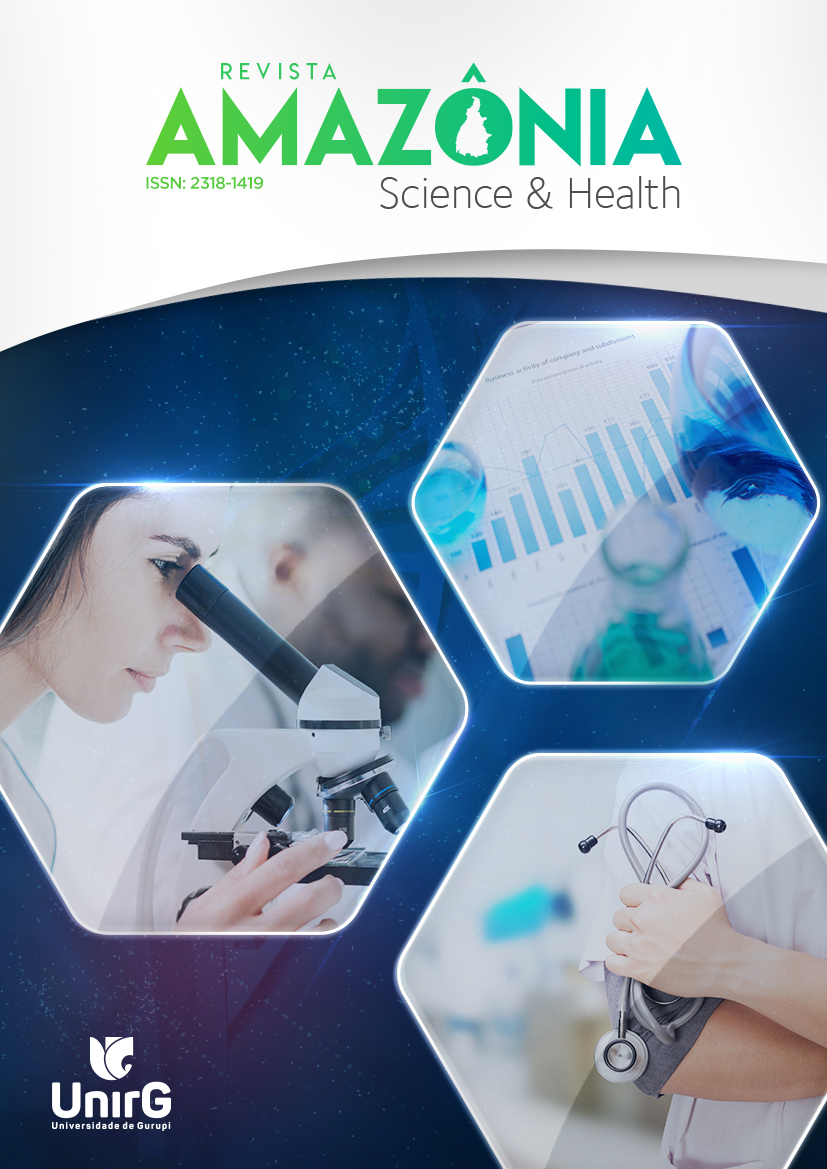Principais tipos de enteroparasitoses em crianças e as implicações para a sua saúde
Mayra Loreanne Nascimento Corrêa, Matheus Lopes dos Santos, Débora Chagas Cardoso de Melo, Fabrício de Souza dos Santos, Luzilena de Sousa Prudêncio, Camila Rodrigues Barbosa Nemer, Nely Dayse Santos da Mata
Resumo
Este estudo tem como objetivo identificar as principais enteroparasitoses que infectam as crianças e compreender as implicações para a saúde das mesmas. Trata-se de uma revisão integrativa da literatura. O levantamento bibliográfico foi realizado no mês de agosto a outubro de 2024, mediante consulta nas bases de dados eletrônicas MEDLINE, SCOPUS, Web of Science, LILACS, IBECS e BDENF via BVS. Inicialmente, foram encontrados 510 artigos, porém após aplicação dos critérios de inclusão e exclusão, selecionou-se 9 artigos para compor esta revisão. Identificou-se que os parasitas mais prevalentes na população infantil são Giardia lambia, Endolimax nana, Entamoeba histolytica, Entamoeba coli, Enterobius vermicularis e Ascaris lumbricoides. Outros parasitas foram identificados em menor prevalência nos estudos, sendo eles: Trichuris trichiura, Blastocytis hominis e Ancylostoma sp. Quanto as principais implicações de saúde das infecções parasitárias incluem desnutrição, anemia ferropriva e deficiência no desenvolvimento físico e cognitivo. Conclui-se, portanto, que entender esse cenário parasitológico é essencial para a saúde pública, pois fornece subsídios para o planejamento de estratégias mais eficazes de prevenção, diagnóstico e tratamento das parasitoses intestinais.
Palavras-chave: Crianças. Parasitos. Infecções por Protozoários. Helmintos. Processo Saúde-Doença.
Copyright (c) 2025 AMAZÔNIA: SCIENCE & HEALTH

This work is licensed under a Creative Commons Attribution-NonCommercial-NoDerivatives 4.0 International License.
A Revista faz uso da Licença Creative Commons Atribuição-Não Comercial-Compartilha Igual 4.0 Internacional (CC BY-NC-SA 4.0)
Maiores informações sobre a licença disponível em: https://creativecommons.org/licenses/by-nc-sa/4.0/deed.pt
- 1º Os autores cedem à Revista Amazônia: Science & Health os direitos autorais no momento em que submetem seus artigos à mesma. Os autores declaram que o artigo submetido não foi publicado, e não está sendo considerado para publicação, na íntegra ou em parte em outro periódico. Os autores assumem total responsabilidade pela originalidade do artigo, podendo incidir sobre os mesmos, eventuais encargos decorrentes de reivindicação, por parte de terceiros, em relação à autoria do artigo.
- 2º A reprodução total dos artigos da Revista em outros meios de comunicação eletrônicos de uso livre é permitida de acordo com a licença Creative Commons Atribuição-NãoComercial-CompartilhaIgual 4.0 Internacional.
- 3º Para outras situações (reprodução parcial dos artigos, impressão em meio físico, entre outras) é necessária consulta e autorização prévia do Conselho Editorial.


